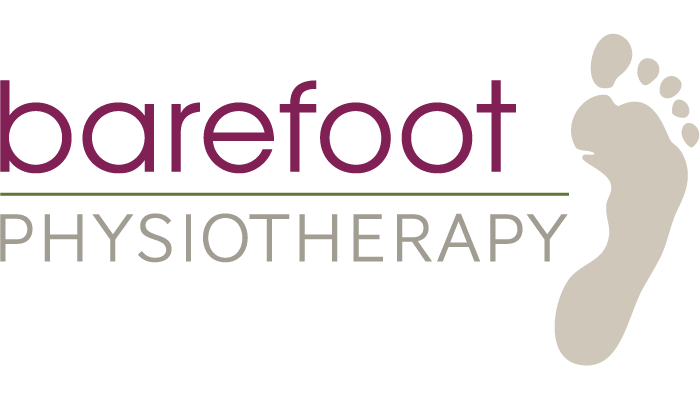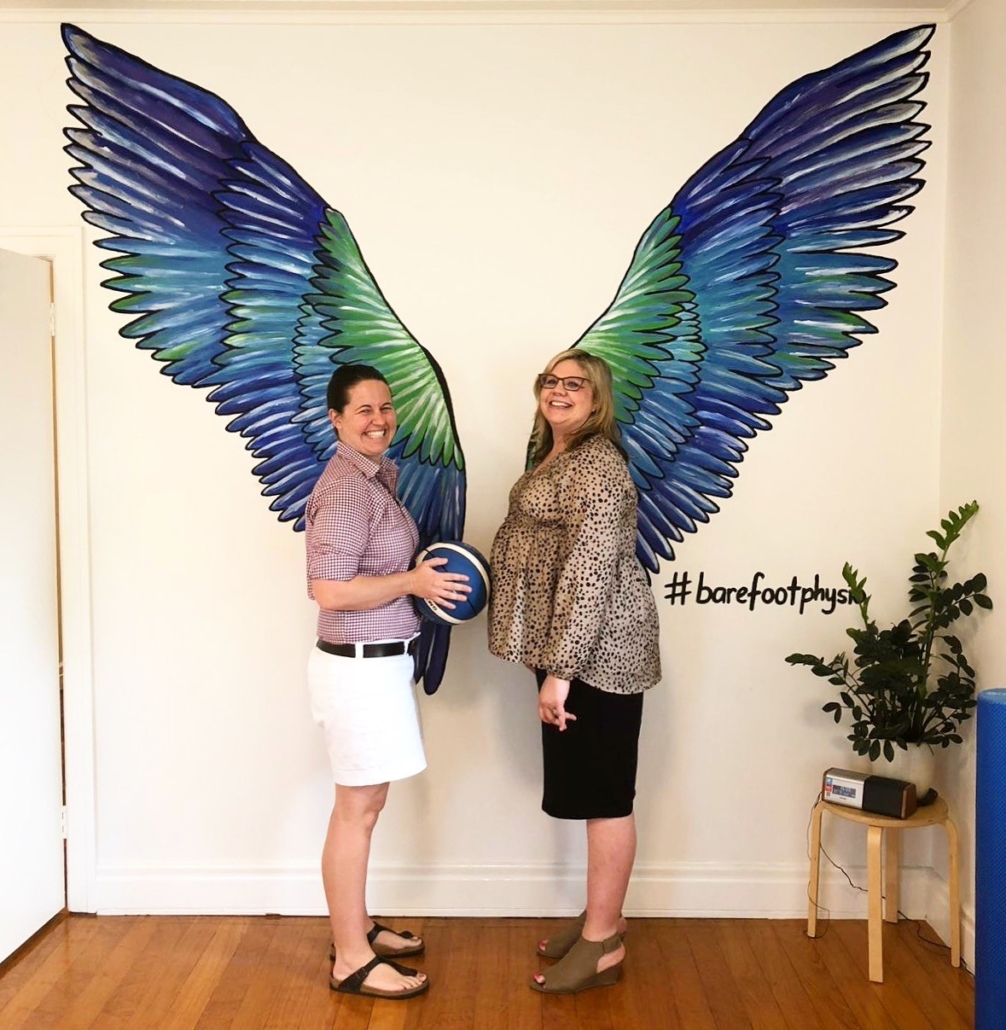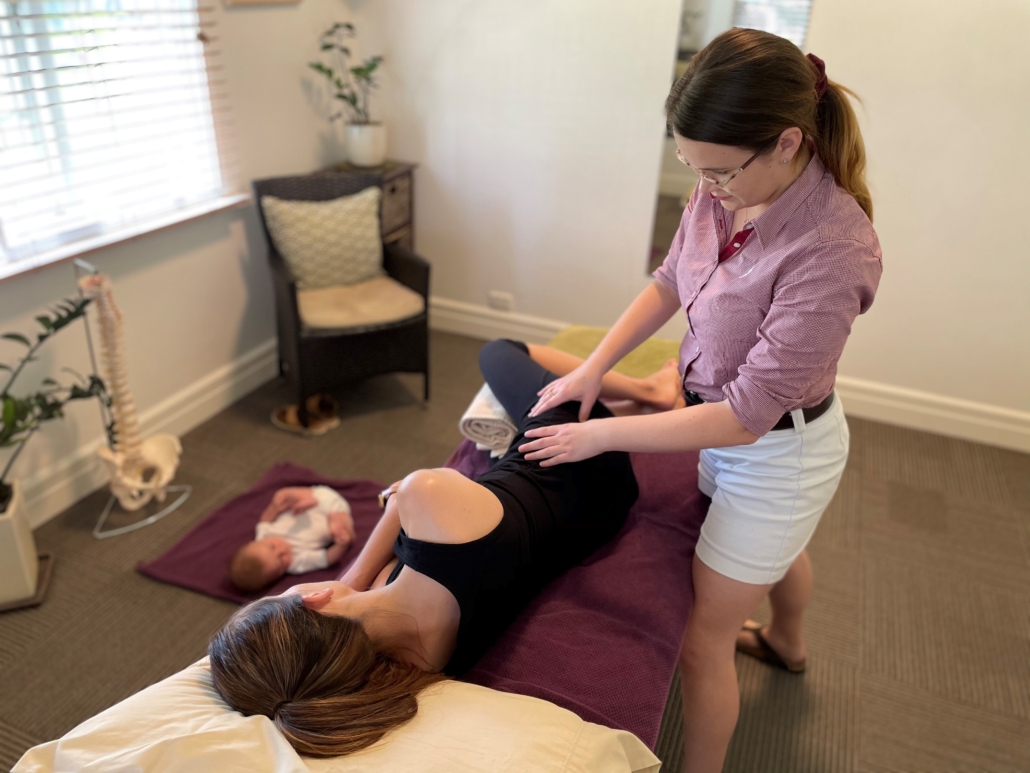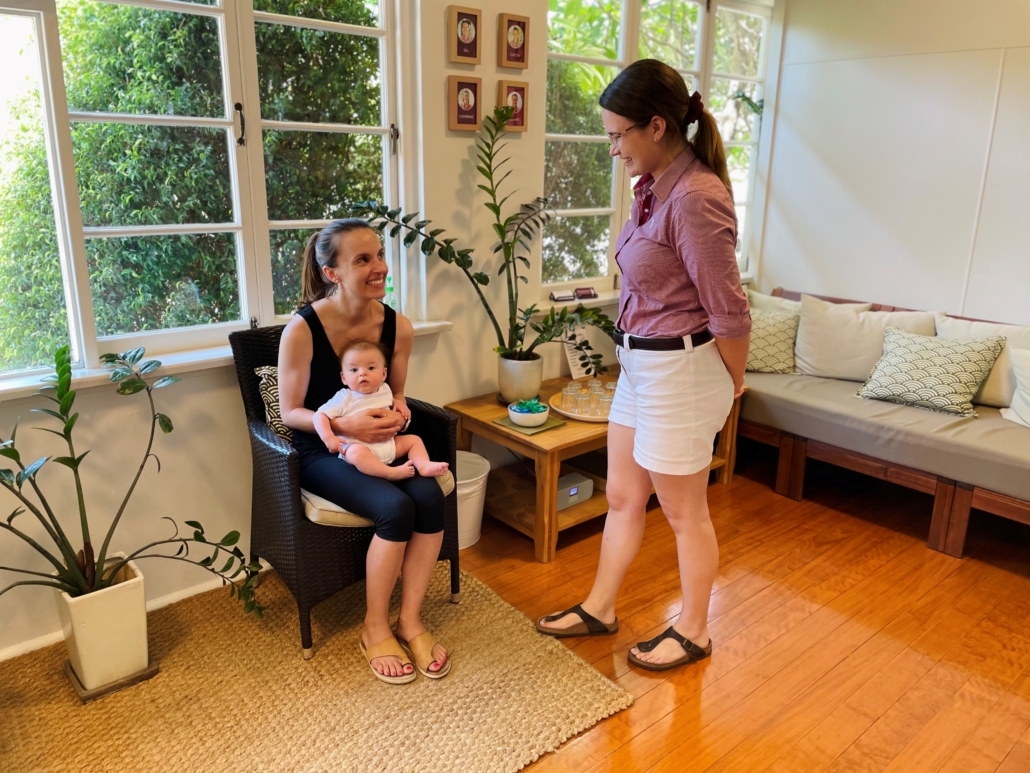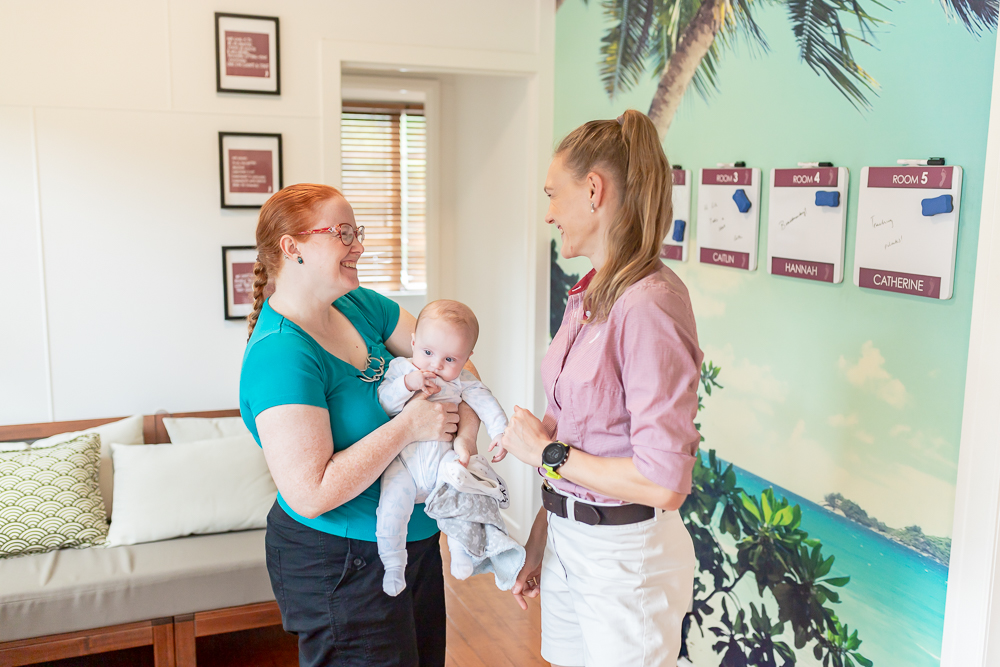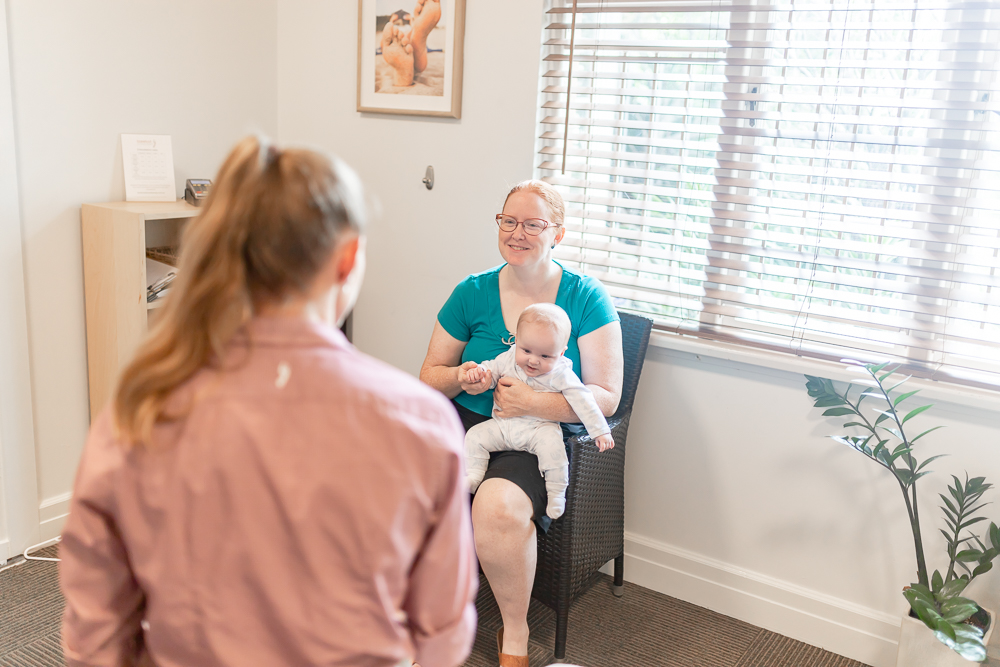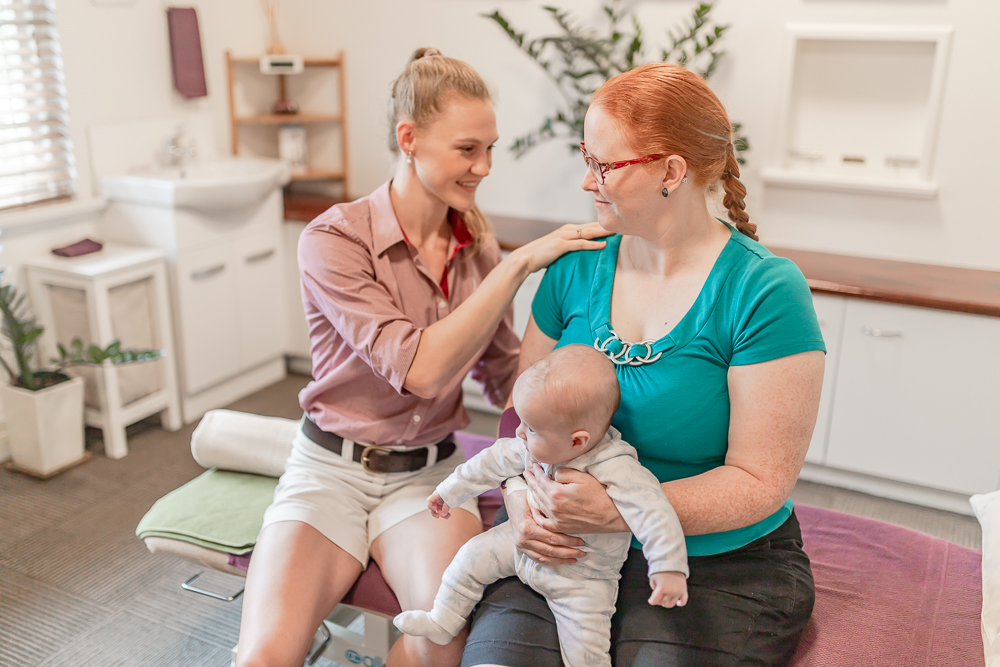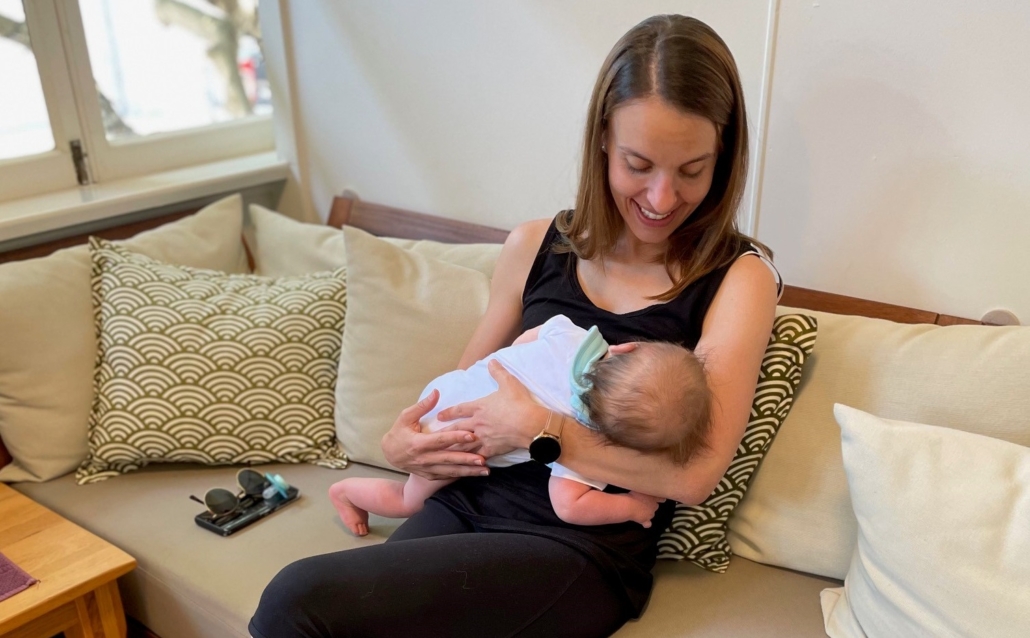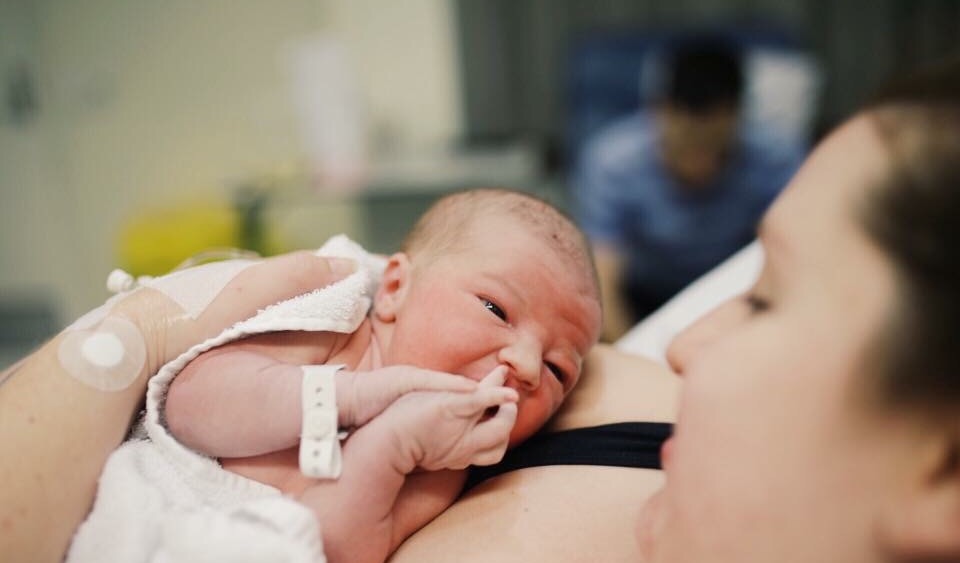Pregnancy Physio Brisbane
Pregnancy is an amazing time of life for any mum-to-be. There’s something primal and magical about the promise of new life and all the excitement and anticipation it brings to the parents, friends and family.
It pulls people closer together, and though it may be tedious at times we all get drawn into the endless questions and theories about gender, age, looks and whether the baby will arrive early or late. Will he have Dad’s nose? Will she get Mum’s eyes? Do twins run in the family?
For most mums, it’s the first step on a defining journey. A life event so big that from the moment of birth onwards, parents often have to restrain themselves from talking about the baby constantly at the risk of boring their friends senseless. Pregnancy is big!
But to misquote former President Roosevelt, nothing worth having comes easy. The joy and wonder of pregnancy is often balanced with equal measures of juggling emotional changes, crazy hormones and stress about finishing work, returning to work, finances and much more.
For first time mums, there’s also the huge question of “what do I actually do when the baby arrives?” Nobody writes a manual for these things (although there are a million and one books and blogs, which often cause even more confusion).
With all of this going on, as well as the usual life stresses, it makes sense to take measures that help you ‘avoid the avoidables’ in pregnancy. Nobody can guarantee a trouble-free pregnancy but there’s steps you can take to give yourself the best possible chance of avoiding the common pitfalls.
That’s where a physiotherapist comes in.
Preparing your body for pregnancy – before you fall pregnant – Pre-natal physiotherapy in Brisbane
Preparing your body for pregnancy is very important – as you’d expect, the stronger and healthier you are, the better it is going to be for both you and your baby. A woman’s health is very important during this magical time and we endeavour to do our best to help Brisbane women reman happy and healthy with experienced physio treatments.
Sometimes pregnancy can cause painful musculoskeletal symptoms, including the aggravation of any current conditions you may have in your lower back, neck, shoulders, ankles, or knees.
So, if you’re already experiencing any of these conditions, you and your baby will benefit from pre-natal physiotherapy well before you fall pregnant.
Plus, when you fall pregnant, your body will undergo a change of weight distribution, which may lead to lower back pain, Sacroiliac joint pain and neck pain.
At Barefoot, we provide individualised musculoskeletal assessment and treatment to get you in the best possible shape before you fall pregnant. We’ll act proactively, to prepare your body, and will also assess and treat any musculoskeletal concerns you may have. Obviously, the earlier we see you before you fall pregnant, the longer time we have to help you prepare your body for a healthy and happy pregnancy.
At Barefoot Physiotherapy, you’ll have full confidence that the treatment and advice we provide is backed by latest research. This includes also working closely with specialised women’s health Physios, who we can bounce ideas off if needed. We don’t do any internal examinations; we have thorough assessment techniques that we use. And if we deem that an internal examination is necessary, we may refer you to a trusted colleague.
Why should pregnant women see a physiotherapist?
In addition to the mental and emotional toll, pregnancy is also a heck of a big deal for the body. Humans are highly evolved creatures with many fine-tuned protective mechanisms in our bodies, but even so, the sort of physical changes typically seen during pregnancy puts a lot of strain through joints, muscles and bones.
For this reason, it’s no surprise that various degrees of pain and discomfort are fairly common themes for pregnant women. And at a time when there’s so much on your plate, these are issues you could do without.
There are two strong reasons to see a physiotherapist during your pregnancy:
- To help keep, or get, your body into the best possible condition to cope with the physical demands of pregnancy
- To recover quickly after birth and make your transition back into ‘normal’ postnatal activities more successful
The comprehensive, systematic and unique approach we use at Barefoot Physiotherapy will help you achieve both of these goals and provide lasting results.
What are some common musculoskeletal problems during pregnancy?
Firstly, the term “musculoskeletal” refers to the large, interconnected system in our bodies which help us move and give us stability. It includes all the muscles, tendons, ligaments, joints and bones that work together and give us mobility.
The musculoskeletal system is an incredible feat of nature. It can rebuild and repair, and if one part of the system fails it can be compensated by other parts giving more effort. Naturally, pregnancy puts a lot of strain on this system and while the body is a champion of adaptation and compensation, eventually the well can run dry.
The body, in all its wisdom, also releases a hormone called Relaxin during pregnancy. This helps to loosen and relax muscles and joints in preparation for childbirth, but the downside is that it’s also a prime candidate for causing musculoskeletal imbalance. Joints that are too loose can cause just as much pain as those that are too tight.
So, after a fair few physical changes and a few doses of Relaxin, what are the common musculoskeletal problems you can expect with pregnancy?
- Neck pain – the weight distribution during pregnancy is skewed towards the front of your body, so strain on the neck is common and can easily lead to pain.
- Back pain – postural changes, changed sleep positions and a growing belly can all lead to back pain.
- Sacroiliac joint pain – SIJ pain is one of the most common complaints during pregnancy. The relaxing and loosening effect of Relaxin can cause the usually stiff SI joint to move more than usual. This in turn can cause pregnant women to favour one side of their body over the other which can lead to inflammation and pain in other areas in the body.
- Shoulder pain – this is not as common in pregnancy but can be related to postural changes and weight distribution.
- Hip pain – usually caused by the loosening of the ligaments holding together the sacroiliac joints, which connect your spine to your pelvis.
- Knee pain – carrying around that growing baby bump, along with any changes in gait (the way you walk) can put extra pressure through the knees.
- Ankle pain – similar to the causes of knee pain but also add in swelling in the joint and you’ve got the usual triggers for ankle pain during pregnancy.
- Postnatal pain – posture is a common source of pain after the baby is born, as Mums always put the comfort of the baby ahead of their own. The posture taken to breastfeed, soothe and bond with a baby for prolonged periods puts massive amounts of strain on the body (the hours and hours of doing this really add up) and can see many sources of pain flare up.
Pregnant women are also advised to sleep on their left side to increase blood flow to the uterus, but this too can cause strain and discomfort.
The extra work that muscles do to compensate for the physical changes induced by pregnancy can lead to overuse injuries, while the resulting inflammation can cause nerve irritation which in turn serves up a long list of symptoms (all of which we can fix, of course!).
Pregnancy is also known to aggravate any existing musculoskeletal conditions you may have. Remember that old knee injury you never quite finished your rehab on? Expect it to come knocking!
What is the best time for pregnant women to see a physio?
As with everything, prevention is better than cure and from this perspective it’s better to be proactive than reactive when it comes to managing joint pain during pregnancy. That said however, it’s never too late and with the Barefoot approach you’ll be able to achieve results regardless – though the longer you wait, the more you have to catch up.
If you have, or have had, musculoskeletal conditions or injuries in the past that flare up every now and then, it’s definitely best to get on top of these before you fall pregnant with pre-natal physiotherapy.
What are the benefits of physiotherapy for pregnant women?
The specific benefits you’ll receive through maternity physiotherapy will be relative to your own body, but generally speaking the following benefits can be expected:
- Reduced pain and discomfort during pregnancy
- A personalised plan that is right for your body and safe for your baby
- Education and information that can help you avoid problems down the track
- Advice on carrying and breastfeeding positions specific to your body
- A constant during a sometimes stressful period, providing expert advice and guidance about your body
- A smoother and more successful return to activities after birth
Very few (if any) experts talk about preparing your body from a musculoskeletal point of view for pregnancy but that’s just what you’ll get at Barefoot Physiotherapy. We also work very closely with specialised women’s health physiotherapists for advice or referrals (if needed).
Is it safe to have physiotherapy while pregnant?
There are some techniques that we modify or avoid when treating pregnant women, particularly in the last trimester when the belly has really popped, but all of our sessions are 100% safe for you and your baby.
What is a typical physio session like for a pregnant woman?
No two sessions in our clinic are ever the same, and it’s no different for sessions during pregnancy. Our experienced physios are all at the top of their discipline and treat each maternity physiotherapy session with a fresh set of eyes, following the Barefoot approach to:
- Understand your goals
- Identify the root cause of your problem
- Create an effective rehabilitation or training plan
- Teach you how to maintain your progress for lasting gains
- Communicate with other professionals involved in your treatment
One aspect we’re always sure to include in sessions with pregnant women is education, focussed on what’s happening during each specific stage of the pregnancy. We use this knowledge and overlay it with your goals and lifestyle to help keep you doing the things you want to do, safely.
After childbirth
In the six months after childbirth, your body is in a state where it needs extra care. It’s easy to injure yourself during this time if your joints are not well supported. Therefore, new mums can sometimes need specialist physiotherapy care for persistent problems following childbirth.
Plus, on top of that, you’ll no doubt be in a sleep-deprived state where all that tends to matter is the wellbeing of your baby. This is when you repeatedly get into certain postures that your body is not used to for extended periods… such as feeding them, shushing them, rocking them and of course staring lovingly at them.
You’ll soon realise that seven pounds of baby becomes surprisingly heavy after a few hours of rocking! And this often leads to mid-back and neck pain to flare up at these times. If you’re experiencing these problems, we can help you with:
- The correct carrying positions
- The correct breastfeeding positions that take pressure off your body
- Adjusting baby carriers to make sure they are good for you and bub
- Checking how the newborn process is affecting your body
- Getting your posture right when standing and sitting
- Breathing and relaxation
- Essential exercises to get you back into good shape ASAP
And on top of this, we are also a fantastic constant. Often mothers need somebody to talk to who understands what they are going through, and ask for advice on things we can help with.
And from a professional point of view, you can also be confident when we let you know your body is at a stage where it is ready to move more, and become more active.
We love nothing more than working with a Mum and bub pre, during and after a pregnancy. Come and see us to learn more about how we can help with your pregnancy. You can book online or call anytime.
What’s the Next Step?
To find out more simply call
1300 842 850
You can also book an appointment online via the link below.
